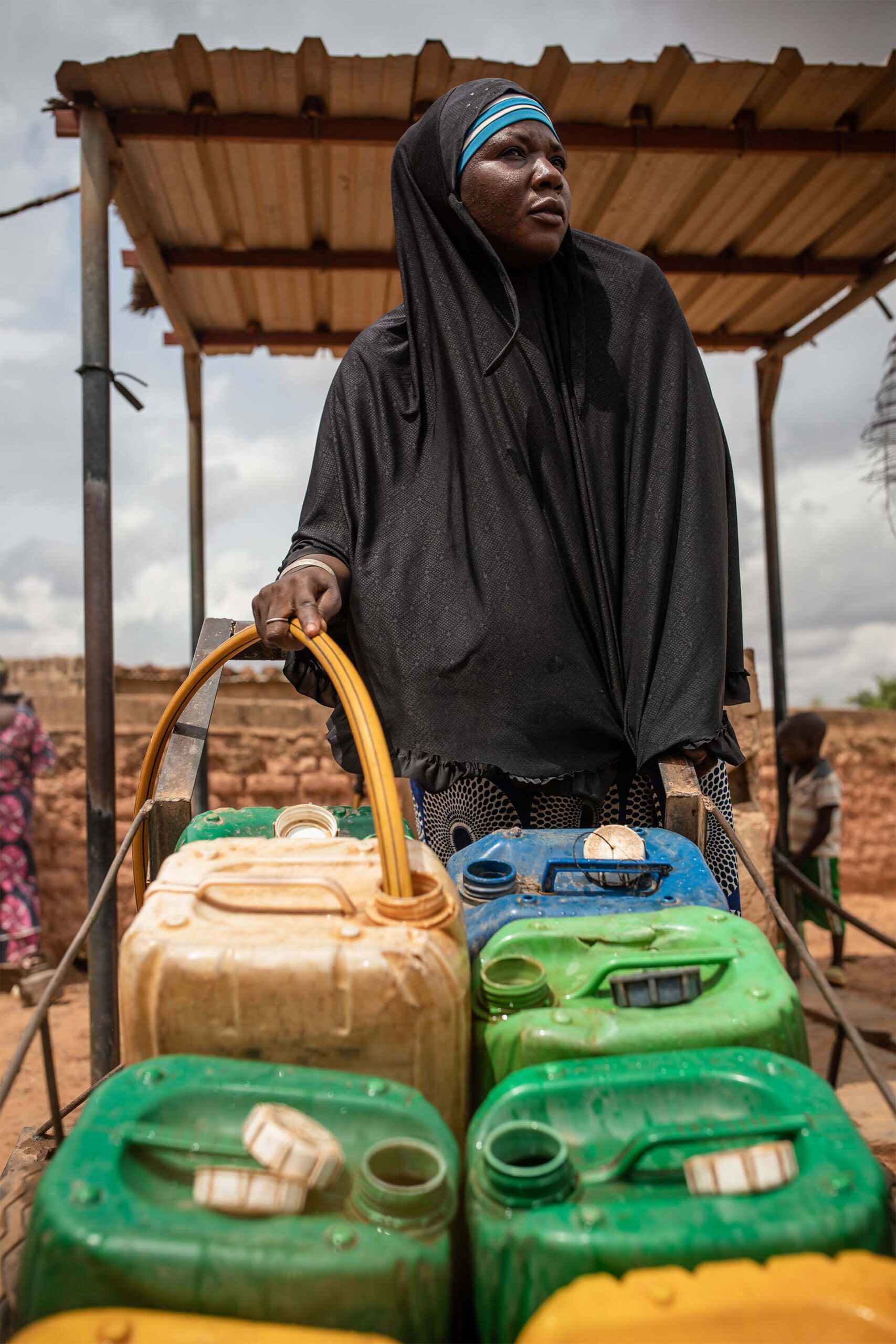The Hunger Project’s goal is to end world hunger. Our approach is different – we see people living in hunger as the solution, not the problem. We shift the mindsets of women and men so…
How one borehole transformed Jamilla’s community
In a small Ugandan village, Jamilla Nabirye, an elderly woman experienced a daily battle: getting water. Before, her grandchildren would trek for hours, only to bring back one jerrycan full. That little water was for everything – drinking, cooking, washing. Sometimes, Jamilla herself would try to go, but the lines were too long, and she’d plead with people to let her skip ahead. It broke her heart when kids came back with bruises from fights over water.
Jamilla is just one of the approximately 2 billion people worldwide who do not have access to safely managed drinking water and sanitation services. Because available boreholes are so far apart with long lines of people queuing, many use open wells or water from rivers, streams and swamps. These sources carry water-borne diseases such as cholera, typhoid and diarrhoea that wreak havoc on communities.
Luckily, The Hunger Project stepped in and drilled boreholes in Jamilla’s village. Life began to change.
“After The Hunger Project drilled the boreholes; our hygiene greatly improved; we wash clothes daily, bathe any time and can clean household items. Now, those fights at the water sources have also been reduced.”
Beyond the tangible impact, the boreholes brought the community closer. Together, twelve surrounding villages formed a Water Committee, each contributing a small fee to ensure the boreholes’ longevity. Local stakeholders and village partners gather regularly to learn about the project and build ownership and accountability, and regular THP visits deliver critical information on hygiene and borehole maintenance.
All of this helps to ensure long term, sustainable adoption so that Jamilla and her family can continue to lead happier and healthier lives.

After The Hunger Project drilled the boreholes; our hygiene greatly improved; we wash clothes daily, bathe any time and clean household items thoroughly items. Now, those fights at the water sources have also been reduced.

Make your
impact count
Food & Nutrition
-
1,444,713
children receiving weight or nutrition monitoring
-
342,000
adolescent girls receiving Iron and Folic Acid supplements
-
1,080,406
People trained in nutrition and food processing
Equality & Empowerment
-
2,194,666
people have participated in our Vision, Action and Commitment workshops across all of our Program Countries since 2008
-
1,189,000
People have participated in HIV/AIDS and gender inequality workshops in Africa since 2008
-
593,130
women have participated in our leadership training since 2008
Education & Digital Equality
-
222,057
adults have enrolled in adult literacy in Africa since 1999
-
61,106
people have been trained in Safe School for Girls workshops in Bangladesh
-
15,651
Animators (volunteer leaders) have been trained in literacy and education in Africa since 2011
Water & Health
-
1,085,246
children vaccinated in Africa since 1999
-
1,158,000
People trained in water and hygiene globally since 2011
-
209,619
Bed nets to prevent malaria distributed
Climate & Environment
-
158,676
People trained in climate adaptation workshops since 2008
-
692,645
people trained in food security since 2011
-
26,007
people trained in climate adaptation workshops in 2024

